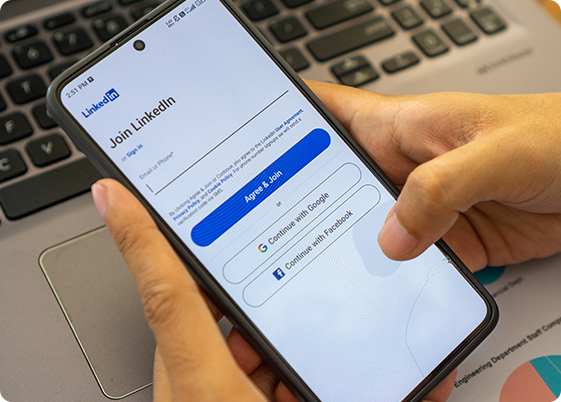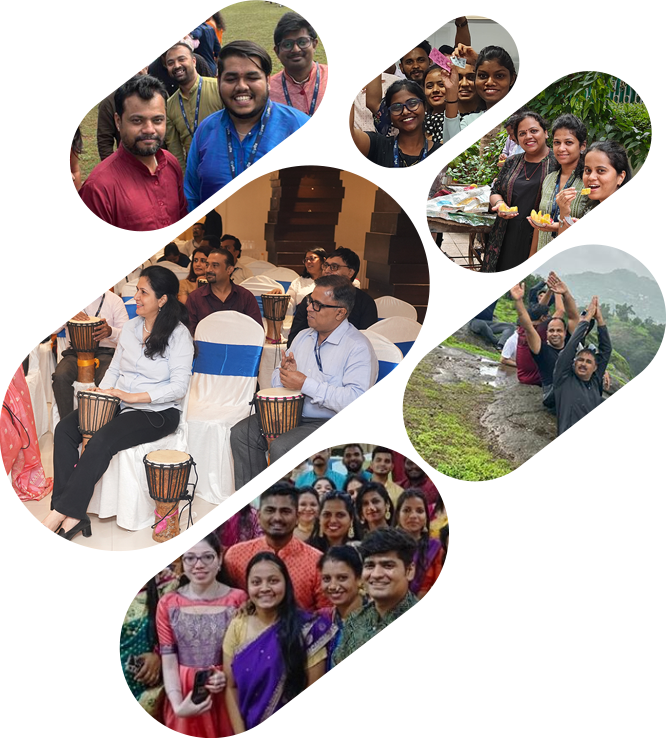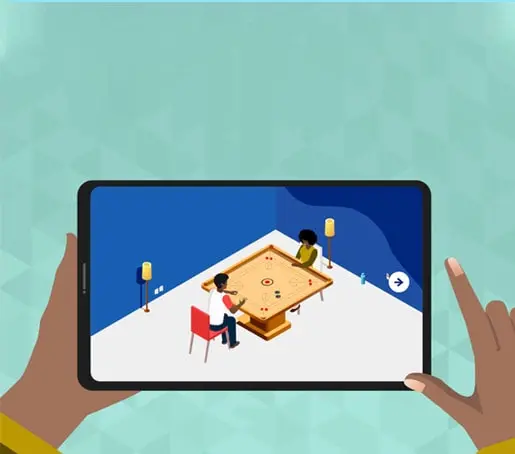
Building a professional network in today’s competitive job market is no longer optional—it’s essential. You could be a recent graduate, an employee seeking new career opportunities, or a professional looking to grow your career faster. Mastering how to build a professional network can lead to new career opportunities, referrals, and essential mentorship.
This blog will explain why building a professional network is vital and provide actionable tips on building valuable connections that result in job opportunities and career growth.

Why is Building a Professional Network Important?
Career planning is critical in shaping your professional journey, and networking plays a key role in determining the type and volume of opportunities that come your way . One of the essential components of career planning is building a strong network. Here's why:
- A strong professional network links you to opportunities that are not publicly advertised.
- Employers prefer to hire candidates recommended by people they trust, so networking is often essential to being considered for many job opportunities.
- Networking exposes you to mentors who can advise you on your career choices and guide you in upskilling for career advancement.
- It keeps you updated with industry trends and best practices.
How to build your professional network, especially in India’s rapidly evolving job market, is a fundamental skill that every career-conscious individual must learn.

Key Strategies to Build a Network That Gets You Hired
The following are effective and practical steps on how to create a professional network that can actively assist you with your career goals.
1. Start with Your Existing Contacts
In many cases, the best place to start connecting for your professional network is where you already have some shared history : family members, friends, classmates, previous coworkers, and teachers. Let them know you're exploring new opportunities or aiming to grow professionally.
Request introductions to individuals in your target area. Remember that even if your existing contacts are not hiring, they might personally know someone who is. Beginning small gains momentum.

2. Leverage LinkedIn Effectively
Building a strong and professional LinkedIn profile starts with writing a clear summary that showcases your achievements. To make a real impact, it's also essential to be active on the platform regularly, connect with others in your industry, and participate in meaningful discussions.
In India, many job seekers have successfully landed roles in competitive industries like IT, finance, and digital marketing through effective LinkedIn networking. So, how do you build a professional LinkedIn profile and expand your network effectively?
- Keep your LinkedIn profile professional and polished by showcasing your skills, experiences, and successes.
- Personalise connection requests instead of sending generic invites.
- Regularly interact by posting appropriate content, commenting wisely, and supporting your connections' skills.
- Participate in LinkedIn groups that are relevant to your industry and interact actively.
By mastering how to build a LinkedIn network, you put yourself in front of more recruiters and professionals within your field, giving you higher odds of getting on their radar for customer service jobs or other openings.
3. Attend Industry Events and Conferences
Meeting people in person is an effective way to develop and maintain professional networks. Industry-related seminars, workshops, conferences, and networking meetups are great avenues to meet directly with individuals who can shape your career. Such events bring together professionals from across experience levels,industries, and expertise.
It is essential to prepare beforehand to optimize these opportunities. Prepare a brief but practical introduction to inform others about who you are, what you do, and what you seek professionally. Carrying business cards—or digital visiting cards, which are increasingly popular in India—adds a professional touch. By participating in such events focus on building relationships that are mutually beneficial in the long term.
4. Conduct Informational Interviews
Another highly effective networking strategy is conducting informational interviews. You can request informal, low-pressure conversations with professionals in roles or industries you’re interested in. The primary goal is to learn more about their experiences, day-to-day responsibilities, career paths, and challenges they’ve faced.
Informational interviews demonstrate your genuine interest and willingness to learn, which many professionals appreciate. Whether these meetings happen virtually or in person, they provide a valuable chance to ask thoughtful questions and gather insights to help you navigate your career. Often, these conversations can lead to referrals or recommendations, opening doors to job opportunities that may not be advertised publicly.
5. Offer Value Before Asking for Help
One common mistake in networking is reaching out only when you need help. Rather, initially concentrate on offering value to your contacts. This might include passing on helpful industry articles, taking the initiative to help organise events or introducing two people who may benefit from one another's knowledge.
Offering value creates goodwill and trust, making individuals more likely to reciprocate support. True generosity in networking not only produces stronger relationships but also creates a positive professional reputation that endures.

6. Join Professional Organisations
Joining industry bodies such as NASSCOM, TiE, or local Indian chambers of commerce in India grants you access to exclusive resources, job listings, and specialised networking events. Beyond membership, actively participating, such as volunteering for committees or taking leadership roles, sets you apart and enhances your credibility among peers.
7. Stay Consistent and Follow Up
After meeting someone new, always send a thank-you note or a personalised LinkedIn message to show appreciation. Keep in touch periodically by sharing updates, congratulating them on milestones, or sharing industry insights relevant to India’s job market.
These thoughtful follow-ups maintain and strengthen relationships, keeping you at the top of your mind when new opportunities arise.
Final Thoughts
Building a professional network is an ongoing process that requires patience, authenticity, and effort. It goes beyond collecting contacts. It’s about nurturing genuine relationships that can support your career ambitions.
You position yourself as a proactive and engaged professional by starting with your current contacts, harnessing LinkedIn, attending events, offering value, and staying consistent. This can significantly enhance your chances of getting hired and advancing your career.
Visit HGS India Careers to implement your networking strategies and explore real job opportunities in India. With a strong focus on digital services and customer experience, HGS India offers entry-level to experienced roles where your professional network can make a difference.
If you want to explore further, consider the importance of career planning and how you can upskill for career growth to complement your networking efforts. For those interested in service-oriented roles, customer service jobs offer a fantastic entry point for applying these networking strategies effectively.
Frequently Asked Questions (FAQs)
What are the three types of professional networking?
The three types of professional networking are personal (family and friends), operational (colleagues and peers), and strategic (industry leaders for long-term growth).
What are some common mistakes in professional networking?
Some common mistakes include engaging in networking only when you need something, failing to follow up after meetings, and being insincere or overly self-promotional.
What should I avoid when networking?
Avoid being too pushy with HR professionals on platforms like LinkedIn, which is considered unprofessional in India.
How do I deal with rejection or no response?
Networking involves some level of rejection or silence. Stay positive, be patient, and keep expanding your network. Focus on building quality relationships rather than quantity.
 India
India Canada
Canada Colombia
Colombia Jamaica
Jamaica Philippines
Philippines UK
UK US
US SA
SA



